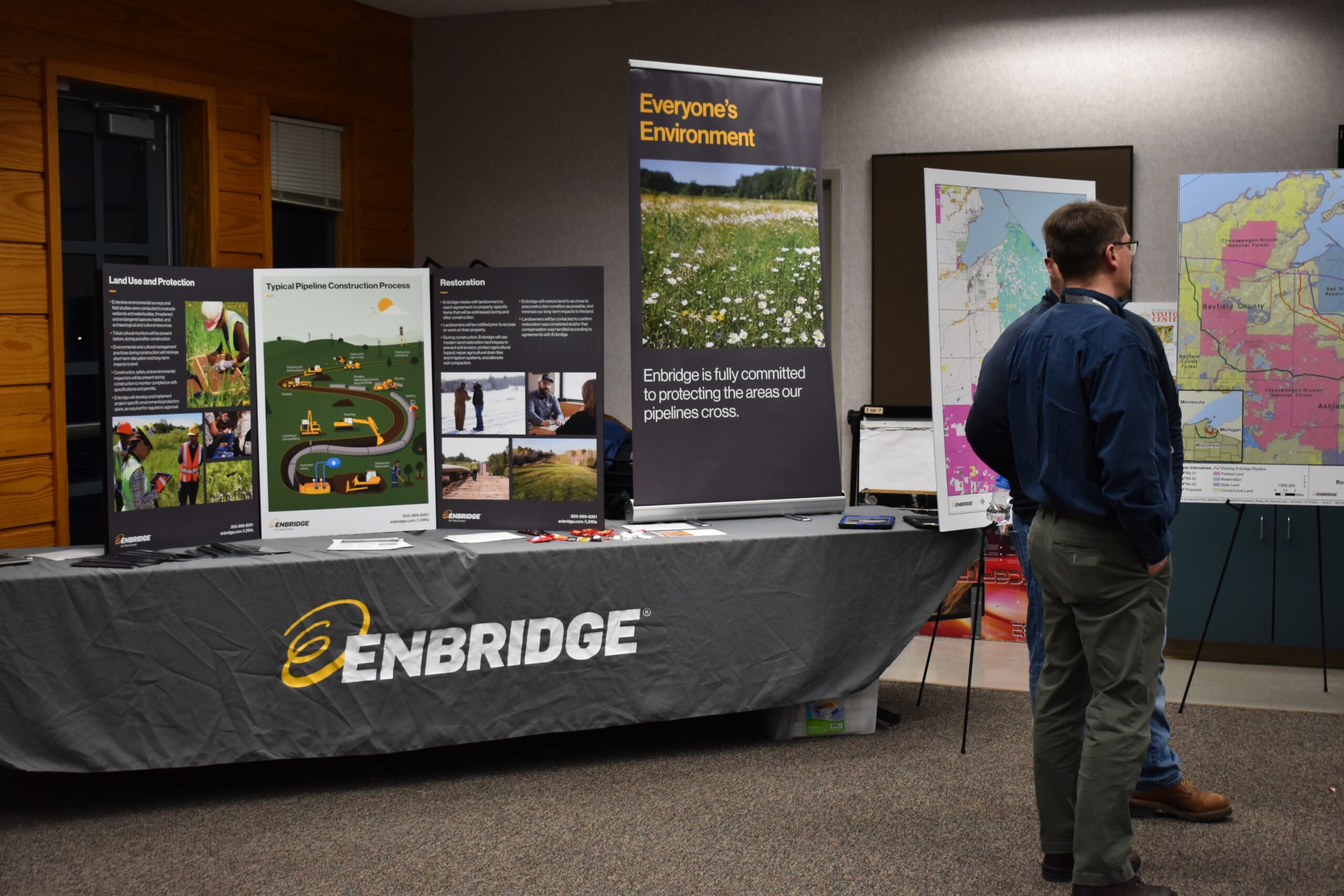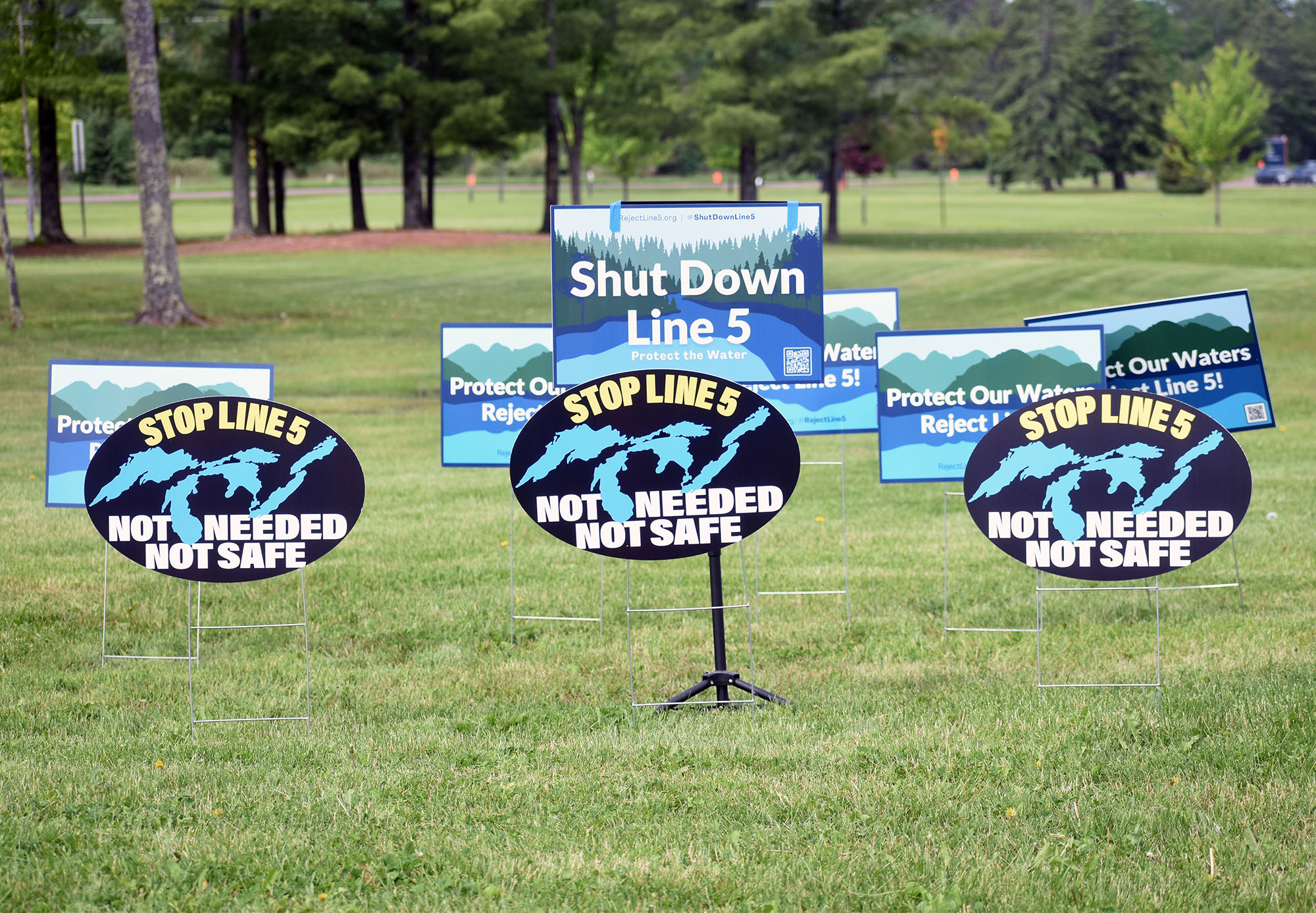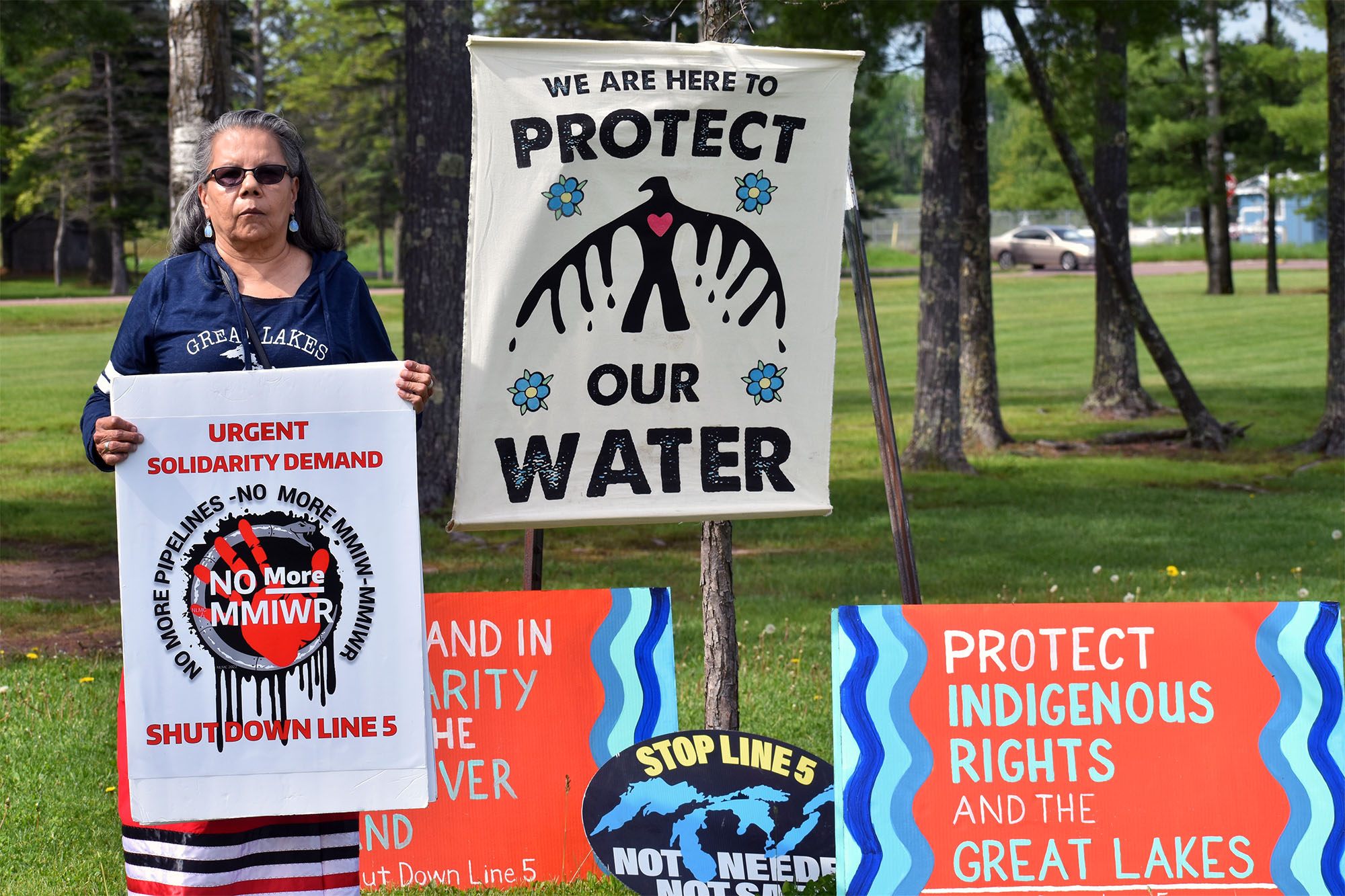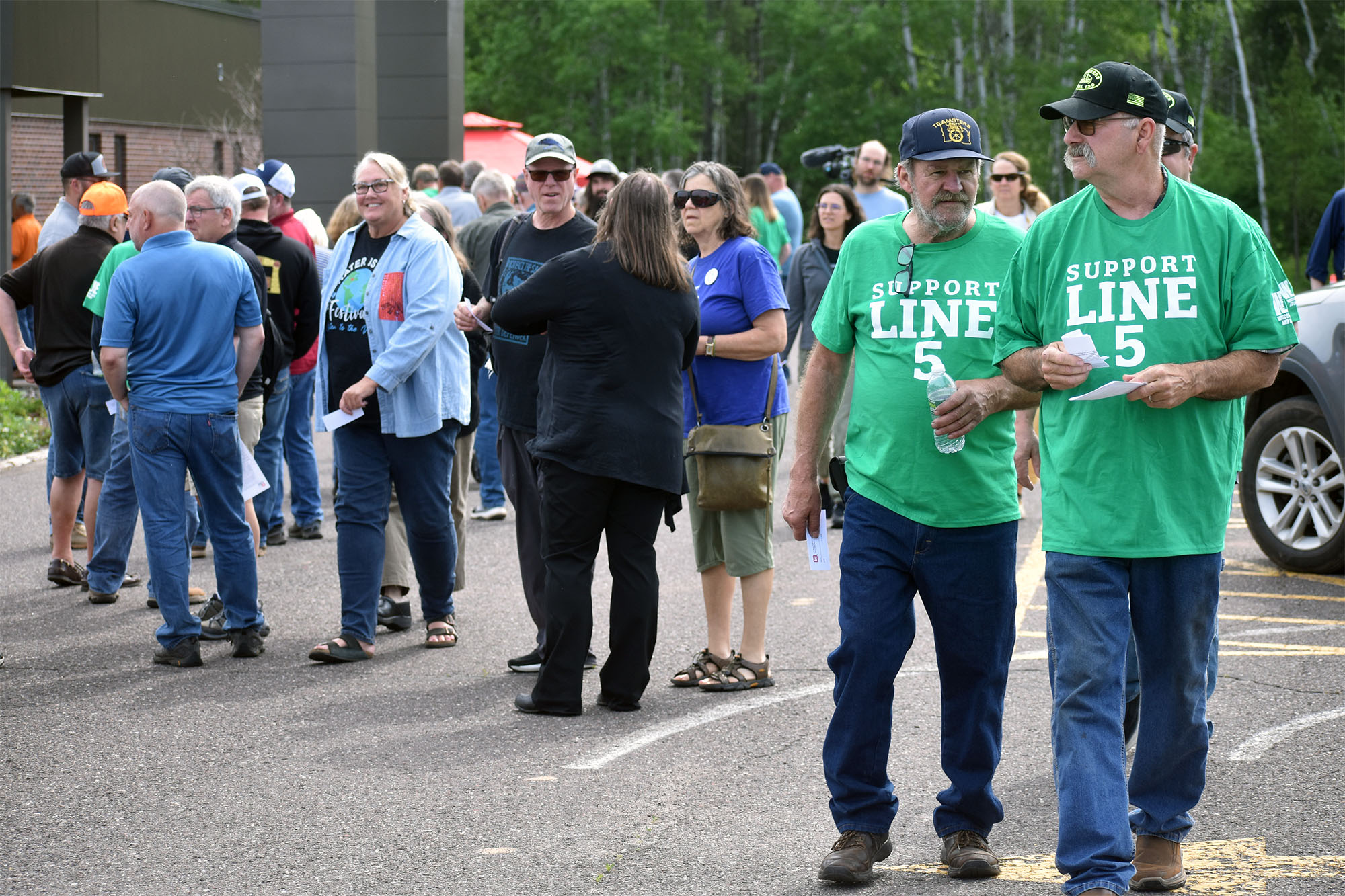Becki and Cary Nelles built their house on 60 acres in the Town of White River, just south of Ashland, 10 years ago. She called it her husband’s dream home.
“He always wanted land where he could go out and hunt, and we had that,” she said. “Then, one day we got a phone call on our answering machine from Enbridge saying they wanted to survey our property.”
Now, the couple fears Enbridge, a Canadian energy firm, wants to take their home as part of the company’s plans to reroute its Line 5 pipeline in northern Wisconsin. The pipeline carries up to 23 million gallons of crude oil and natural gas liquids each day from Superior to Sarnia, Ontario, Canada.
Stay informed on the latest news
Sign up for WPR’s email newsletter.
Enbridge is seeking to build a roughly 40-mile reroute of the pipeline south of the Bad River reservation in Ashland and Iron counties after the tribe filed a federal lawsuit last summer aimed at shutting down and removing the line from its lands. The tribe decided not to renew easements with Enbridge on some tracts of land three years ago. Tribal leadership say the pipeline, which had become exposed due to erosion, threatens the Bad River.
The Nelleses were among roughly 100 people who attended an open house Tuesday night at the Northern Great Lakes Visitors Center in Ashland hosted by Enbridge to hear about the company’s plans.
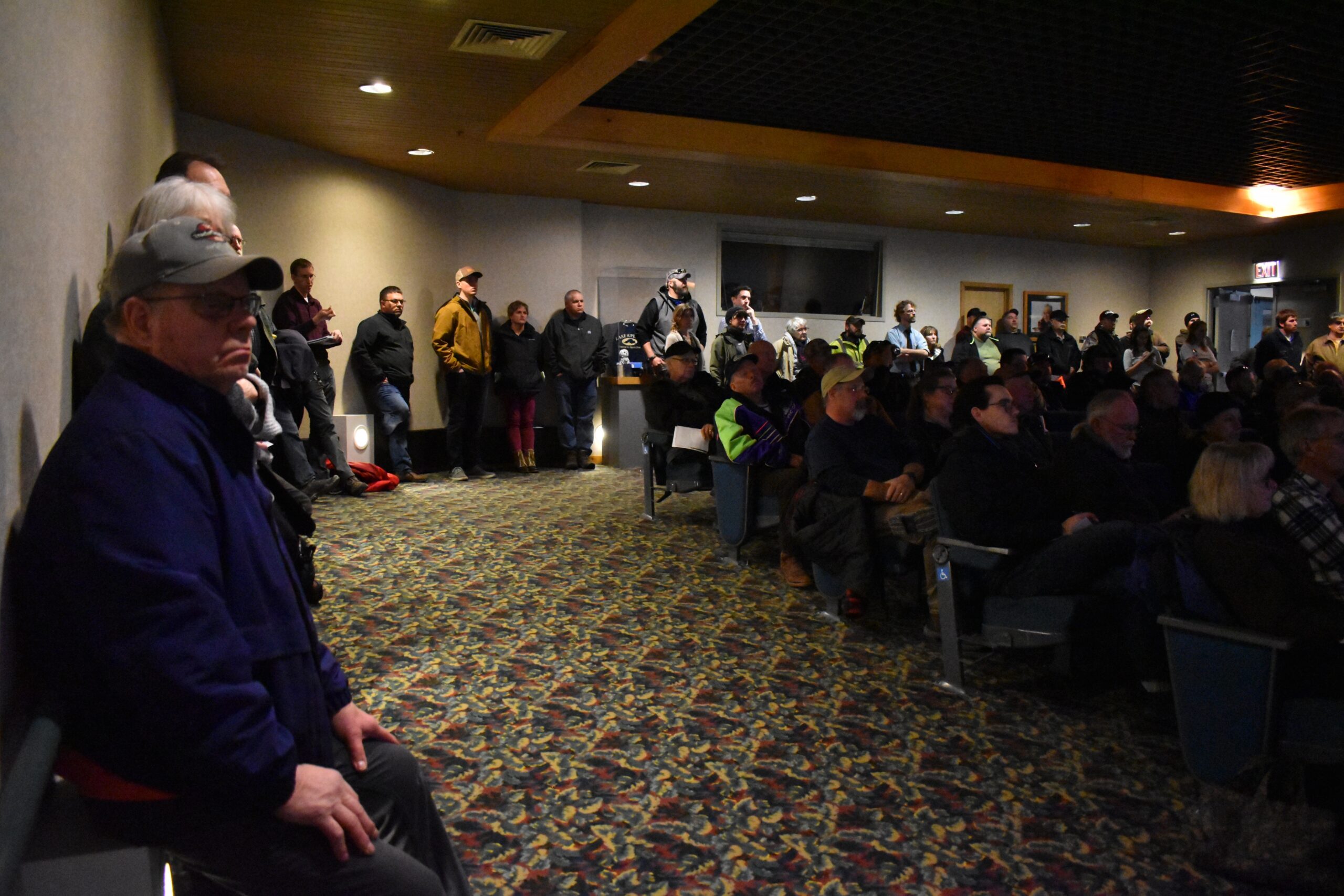
Enbridge offered the couple money to sign an option agreement for the land, but they declined. If the reroute crosses their property, the couple said Enbridge would have to buy their home because they would have no reason to stay.
“For transporting oil it would probably be my opinion that a pipeline is probably safer than any other way to transport it,” Cary Nelles said. “But, most people like ourselves certainly don’t want it going by their house or across the land.”
An Enbridge spokeswoman said there are no plans to reroute the pipeline across the Nelles couple’s property. But, the proposed reroute would cross Tom Marincel’s land as it has for more than three decades. The Ashland resident said the pipeline crosses within 75 feet of his home, and he highlighted the company’s thoroughness in maintaining the line on his property. He said they’ve conducted multiple digs to inspect the safety of the 66-year-old Line 5.
“As far as any impact that they have on the environment, I trust them with my land,” Marincel said. “I don’t really see a problem.”
However, many of the questions Enbridge fielded from note cards submitted by the public at the open house revolved around the environmental impact of the reroute, construction at river crossings and how the company would protect waters like the Bad River. The river, which flows through the Bad River reservation into Lake Superior, is among many waterways the line would cross.
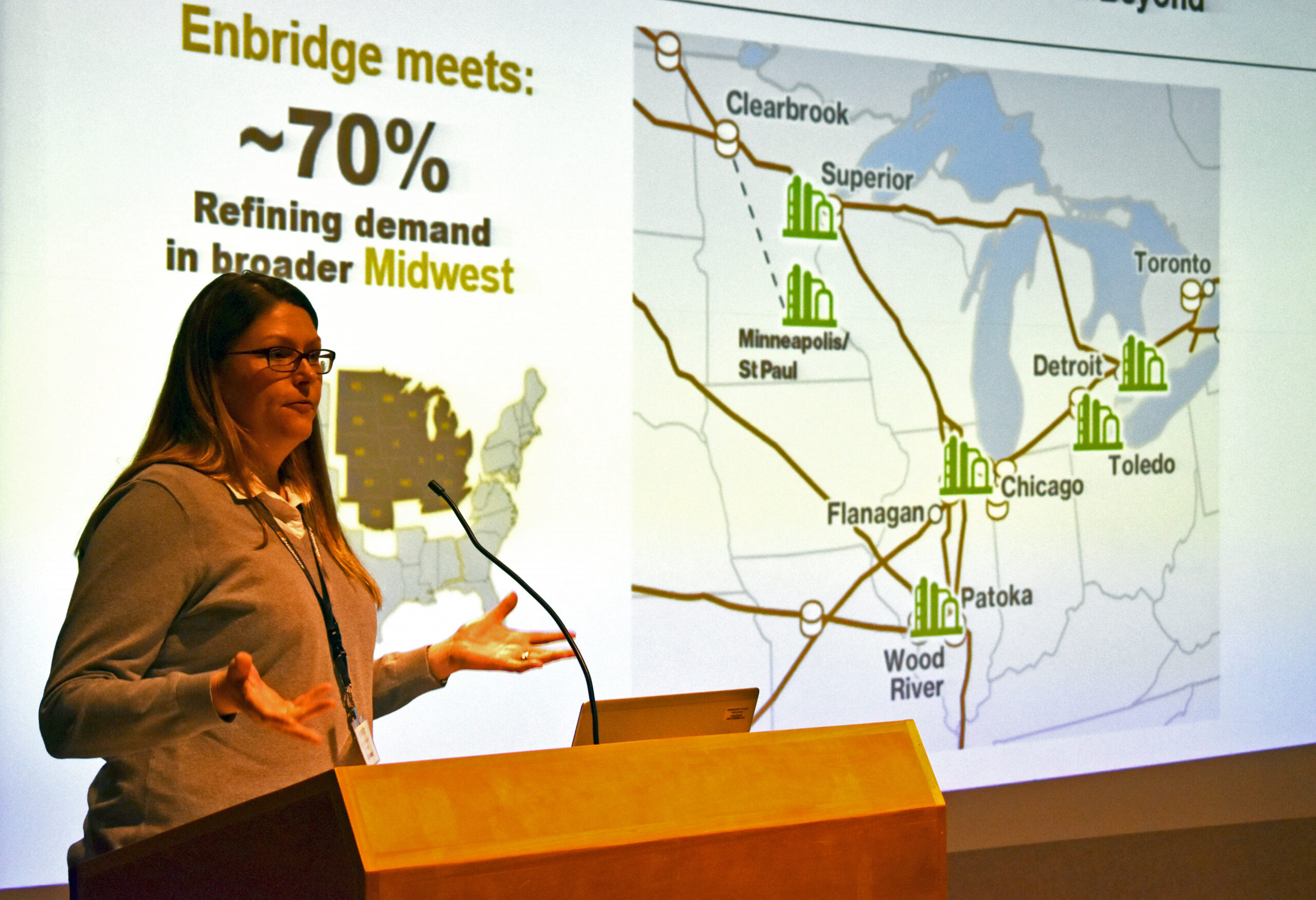
Several area residents grew frustrated with Enbridge officials, peppering the company with questions that included its potential use of eminent domain to obtain land for the reroute. Officials said at times they would end their presentation if the public disrupted their ability to answer questions.
“You’re not even answering the questions that we have. It’s really, it’s a joke. This whole thing is a joke,” said Marengo resident Pete Rasmussen, who then left the presentation.
Bad River tribal elder Joe Rose was also among those who voiced frustration with the process. Speaking before the presentation, he said the company has a poor environmental track record.
In 2010, an Enbridge pipeline burst in Marshall, Michigan, sending oil into the Kalamazoo River. Around 1 million gallons was recovered at a cost of at least $1.2 billion to the company. The company has also seen multiple spills on Line 5. Enbridge has said none have occurred outside its facilities in northern Wisconsin, and the Canadian energy firm has invested billions of dollars for safety improvements and training since 2010.
Still, Rose said a pipeline break would threaten the tribe, their culture and the entire Bad River Watershed.
“It would pretty much do away with the way of life as we know it and as we have known it for generations,” Rose said. “If your land is poison, where are you going to go? We don’t have anywhere to go.”
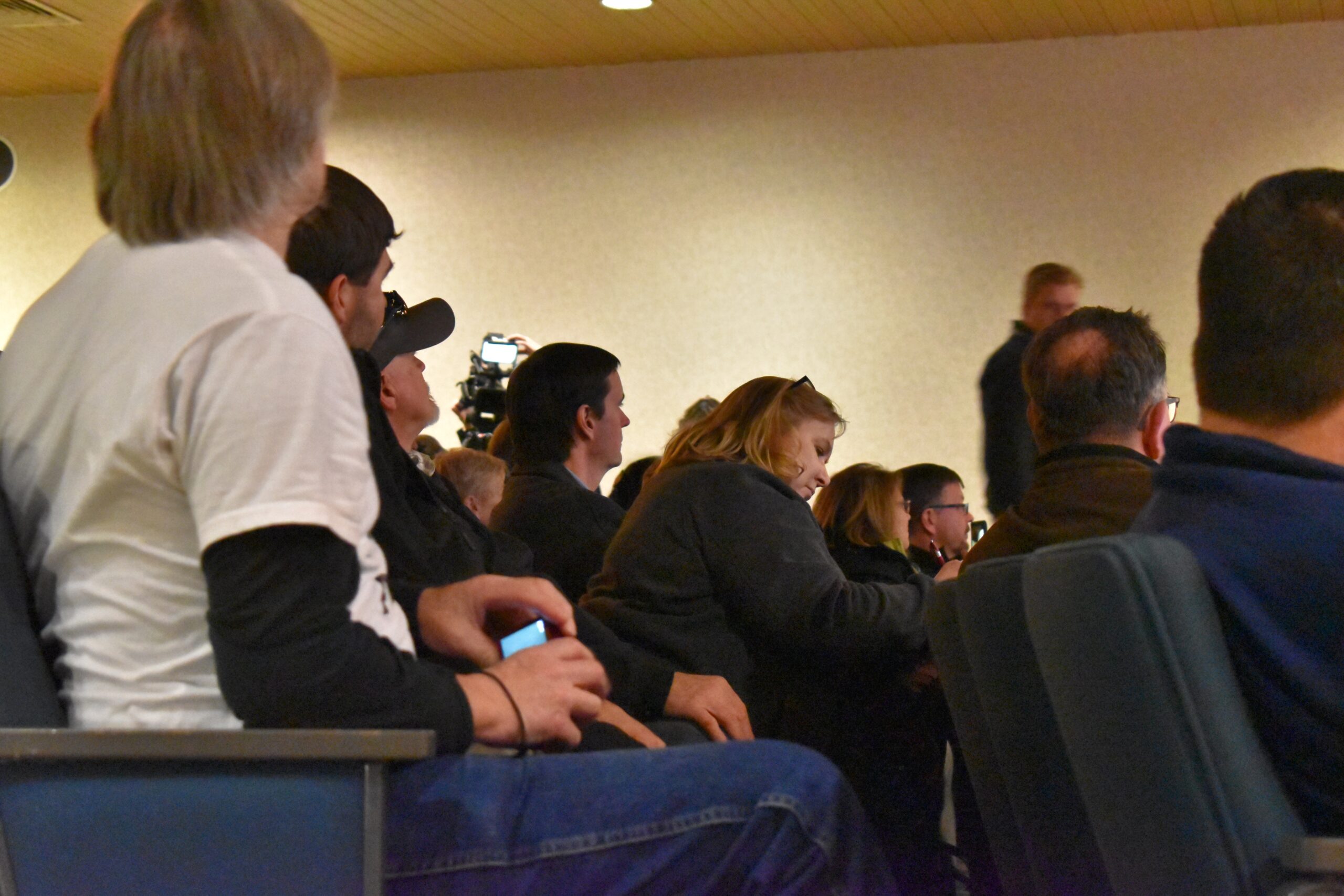
Rose said people don’t realize what they’re “selling out” to Enbridge. But, Marincel, who has received money from the company, said that wasn’t a factor in his decision.
“At the present time, we need that energy or the crude oil — the materials — to be transported someplace, so they can be refined, so we can run our cars and heat our homes,” Marincel said.
Yet, the company hasn’t provided details on how much of the fuel serves Wisconsin residents. Enbridge has said propane is offloaded at Rapid River, Michigan, and likely supplies some residents in northern Wisconsin. The Detroit News has reported roughly 81,000 gallons of natural gas liquids are unloaded there while the vast majority is sent to Sarnia where it is then separated into other fuels and shipped back to Michigan.
Other questions Tuesday night surrounded where Enbridge would obtain steel for the pipeline, as well as labor for the project. The company has said the project would create around 700 jobs during peak construction.
Enbridge’s community engagement manager Jennifer Smith said they will use union contractors and workers for the project, noting they typically sign agreements to have at least 50 percent of labor from local union halls.
The company kicked off permitting of the proposed route with state and federal regulators earlier this month and anticipates that process will take a year to complete.
“We’re really confident that we’ve got a good route that not only can we can secure with 100 percent amicable agreements with landowners, but also it’s one that due to the minimization of environmental impacts that we will be able to get permitted,” she said.
Enbridge has offered the Bad River tribe at least $24 million to settle the tribe’s lawsuit and resolve any easement claims, but Smith said they’ve received no official word from the tribe on its offer. The company is holding two more meetings this week, one is Wednesday in Mellen and the other is Thursday in Hurley.
Editor’s note: This story was updated with information from Enbridge that the Nelles couple’s property would not be impacted by the path of the proposed reroute.
Wisconsin Public Radio, © Copyright 2025, Board of Regents of the University of Wisconsin System and Wisconsin Educational Communications Board.
